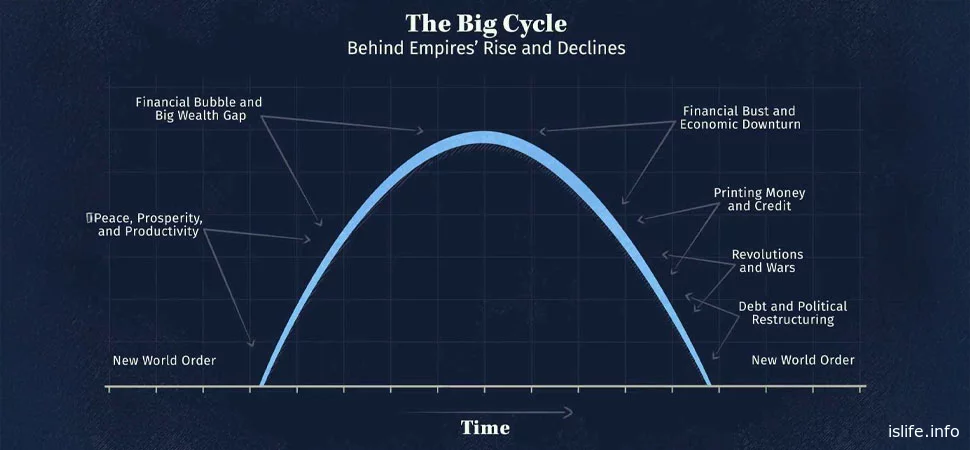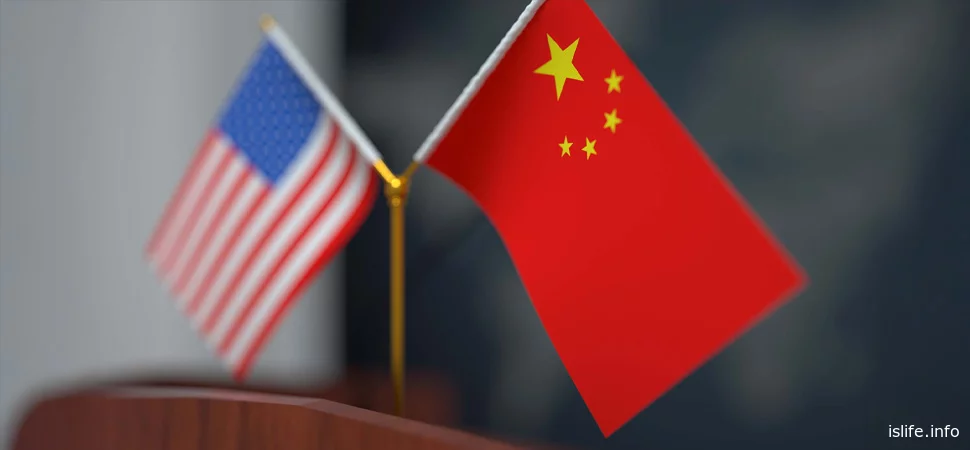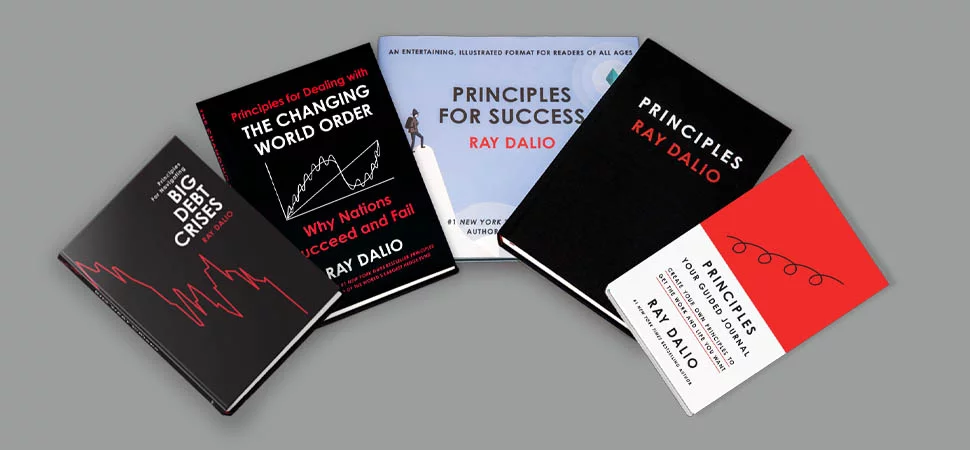Ray Dalio, renowned American investor and founder of Bridgewater Associates, explores the patterns of the rise and fall of great powers in his book The Changing World Order. His work is based on a study of economic, political and social processes over the past 500 years. Using a wealth of historical material, Dalio analyzes why some states become dominant and then lose their power. He applies these observations to the current world situation to suggest strategies for adapting to coming changes.
↑ Historical Cycles: How Empires Rise and Fall
One of the main ideas is the cyclical nature of history. Dalio shows that every great state goes through phases of growth, prosperity, and decline. For example, in the seventeenth century, Holland became a world economic power due to the development of maritime trade and the financial system. However, after a series of wars and economic crises, its influence declined and was replaced by Great Britain.
The British Empire, which dominated the 18th and 19th centuries, became the center of world finance and technology thanks to the Industrial Revolution. But after two world wars, its economic and military power was exhausted, giving way to the United States. In the 20th century, America achieved world leadership through industrialization, cultural influence and a powerful economy. However, according to Dalio, the U.S. today faces similar challenges that foreshadowed the decline of past powers.

↑ The role of debt cycles
Economies develop in cycles, special attention needs to be paid to debt. He argues that excessive borrowing becomes the cause of crises. During boom periods, companies, states and citizens borrow to stimulate growth. However, the debt burden grows and when revenues can no longer cover debt payments, a crisis begins. An example of such processes is the 2008 financial crisis caused by the housing bubble in the US. Today's world economy is again close to the point where debt will become a systemic threat. He warns that ignoring this issue could lead to global economic destabilization.
↑ Internal conflicts
Dalio also looks at domestic issues such as inequality. In periods of decline, the gap between rich and poor tends to widen, leading to social tensions and political crises. Such processes were observed before the French Revolution and also during the Great Depression in the United States. The current situation in the United States is reminiscent of historical examples: economic inequality is growing and political conflicts are intensifying. These factors could weaken the country's ability to recover and reform, accelerating its decline.
↑ International conflicts
Another important element of the analysis is conflicts between countries. History shows that when one nation dominates, competitors try to challenge its leadership. Today's competition between the United States and China is a prime example. China is actively increasing its economic and political influence through projects like the One Belt, One Road initiative and technological leadership. The U.S., in turn, is responding with trade sanctions and attempts to limit China's access to modern technology. Dalio believes that if such conflicts are not resolved diplomatically, the world risks major upheaval.

↑ The Laws of Growth and Decline
Dalio identifies general principles that explain why some powers rise and others fall. Among them:
- Innovation and strong education foster growth.
- Corruption and excessive debt weaken the state.
- Internal and external conflicts accelerate decline.
These principles show that no country is immune to collapse. However, by recognizing the causes, leaders can introduce reforms to slow the process.
↑ What to do in a changing world?
At the level of nations, he recommends reducing debt, investing in education and technological innovation, and tackling social inequality. For individuals and companies, he advises diversifying assets, being flexible and developing skills that will be in demand in the future.
↑ Why it matters
The Changing World Order is not only an economic study, but also a call for awareness of global trends. Understanding the past helps to better prepare for the future. His work is particularly relevant in the context of the rise of China, changes in the world economy, and the global crises of debt and inequality. This book is for those who want not only to understand complex processes but also to adapt to them, whether they are investors, politicians or ordinary citizens. It teaches you to see deeper historical patterns behind everyday events and make informed decisions.

